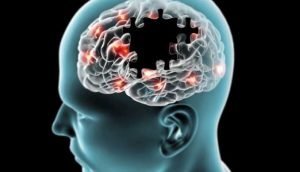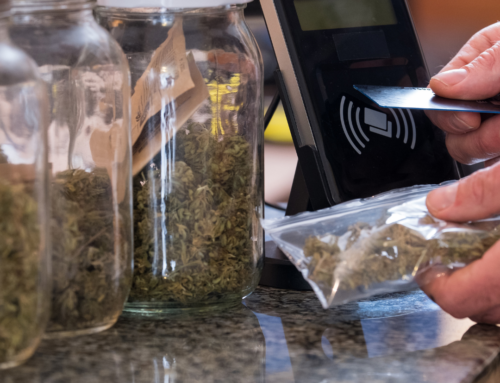We hear all about opiates (and opioids, which are used interchangeably for the purposes of this post because opiates and opioids affect the same receptors in the brain) and the opiate addiction epidemic sweeping the country. It’s important to be fully informed about opiates and their uses – both legally and illegally – to best protect yourself and your family from their potentially devastating effects.

What Are Opiates?
Opiates are a type of drug used to treat pain. While they can be effective if used short-term, they are highly addictive and carry a risk of addiction for anyone who takes them, even if they are used as prescribed. Since their inception, opiates have been used for both medicinal and recreational purposes. Opiates exist on the drug market in a few different forms: as prescription pharmaceuticals (morphine, codeine, methadone, etc.), and illicit street drugs (heroin, opium, etc).
Opiate pain medications are mainly prescribed to treat acute pain. In many cases, opiates are prescribed following surgery, medical procedure, or injury. Some of the more commonly known opiates include:
- Morphine is a highly addictive, naturally occurring substance found in the opium plant.
- Heroin is an illegal, highly addictive drug processed from morphine.
- Hydrocodone is a semi-synthetic opioid. It’s the most frequently prescribed opiate medication on the market and is included in drugs like Vicodin.
- Codeine is a less powerful pain reliever (but still highly addictive) primarily used as a cough suppressant.
- Oxycodone is also a semi-synthetic opioid. Common brand names are Percocet and Oxycontin. These are commonly prescribed after surgeries, sports injuries, or other types of acute (not long-term) pain.
- Fentanyl is a highly addictive opiate that is produced synthetically. It is commonly prescribed as a transdermal patch, and only in cases of extreme pain (often used for cancer patients).
- Meperidine is similar to morphine, however, it is a synthetic prescription medication.
All of these drugs can be abused (even when prescribed) and can potentially lead to opiate addiction.
How Opiates Impact the Brain
Everyone has opiate receptors in their brain. Opiates work by binding with these receptors, thus mimicking the effects of pain-relieving chemicals that are produced naturally. These drugs bind not only to receptors in the brain, but also the spinal cord and other locations in the body. By binding to these receptors, they block the perception of pain.
In addition to relieving pain, opiates create feelings of euphoria. When someone takes an opiate, the reward system in the brain feels an extreme rush of dopamine, which is an important neurotransmitter. Dopamine signals the neurons of your body in a way that creates a very high level of pleasure or excitement often referred to as a ‘high’. The brain is naturally inclined to repeat actions that stimulate the reward system or provoke feelings of pleasure. Over time, the euphoric feeling (high) diminishes and may disappear altogether. Repeated use of opiates makes the receptors in the brain less sensitive to their presence. This means more opiates are required to achieve the desired effect, which is how opiate dependence begins.
How Opiates Impact the Body
Opiates impact nearly every major organ and system in the body, including the heart, lungs, liver, kidneys, and digestive system. Before taking opiates – even as prescribed – it’s important to understand how they impact the body. Consult your treating physician before taking any opiates, and inquire about alternative forms of pain relief if you are concerned about any of these potentially harmful side effects.

Risks of Opiate Addiction
There are several factors involved in a person’s risk for opiate abuse, including hereditary and situational circumstances, but the reality is anyone of any age, ethnicity, or economic means can become addicted to opiates, even when taken as prescribed, and especially if opiates are taken over longer periods of time.
While many people believe it takes a while to become addicted to opiates, there are risks that can change your brain even in just a few weeks. Aside from increasing dopamine, opiates affect the brain in other ways, including slowing the central nervous system which leads to depressed respiration. When opiates overwhelm the system, breathing slows down significantly, and in some cases, it may stop completely.
The dangers of opiate addiction or overdose are increased by not taking them as directed or by combining them with other substances, including alcohol and other drugs. Long-term use of opiates is also associated with a heightened risk of developing major depression. Patients using painkillers in excess of six months have more than a 50% greater chance of developing a depressive episode.
Why Opiates Are Addictive
Over time, opiates ‘trick’ the brain into stopping the production of endorphins naturally. When opiates are ceased, there is a sudden and extreme decrease in endorphins. Since the body can no longer produce its own endorphins (which create feelings of pleasure and wellbeing), this drop causes extreme physical and mental discomfort. People in withdrawal from opiates experience body pain, depression, suicidal thoughts, vomiting, nausea, diarrhea, insomnia, muscle twitches, and more. These symptoms are very uncomfortable, and the person perceives that the only way to experience positive feelings again and alleviate withdrawal symptoms is through continued opiate use. This creates a vicious cycle that perpetuates opiate addiction.
While opiate withdrawal is very unpleasant it is not fatal and physical symptoms pass after several days, but only if no more opiates are consumed. Many people need professional assistance detoxing from opiates, and often require longer-term treatment to prevent slipping back into an opiate habit. It can take weeks or months for the body to begin to generate endorphins naturally, and so further treatment is essential during this risky time.

Opiate Addiction Prevention
Educating yourself (and your loved ones) on the risks associated with opiates reduces the risk of developing an opiate dependence. Talking to your children about the risks of opiates is essential. Kids as young as 12 or 13 can be at risk, due to the prominence of prescribed (and unprescribed) opiates that are available. If a doctor is recommending opiates to treat an injury or illness, ask questions, and discuss alternative forms of pain management.
Even taken for short periods of time, opiates can put you or your child at risk for dependence, so it’s important to be informed. If your child is prescribed an opiate, be sure you control the medicine, and monitor dosages and refills.
Many of the victims of the opiate epidemic are young. In 2014, for instance, nonmedical use of prescription opioids was highest among adults between the ages of 18 and 25, according to the National Institute on Drug Abuse.
Safeguard & Dispose of Your Medications. Many young people begin experimenting with opiates by simply looking through the household’s medicine cabinet. Do you keep previously prescribed opiates/painkillers around ‘just in case’? These are putting you and your children at risk. Would you know if some pills are missing? Take prescription medicine out of the medicine cabinet and secure them in a place only you know about. If possible, keep all medicines, both prescription and over-the-counter, in a safe place, such as a locked cabinet your child cannot access.
Safely disposing of expired or unused medicine is crucial to your household, and decreases the opportunity for your kids (or their friends) to abuse your medicine.
You can do this safely by participating in a safe drug disposal program – either a drug take-back day, an ongoing program in your community, a drug deactivation bag, or a drug mail-back program. To find a take-back location or event near you, visit the American Medicine Chest Challenge.
Educate Yourself and Your Family. If you aren’t sure of a risk associated with any medication – ASK. Get informed. Physicians are typically focused on symptom relief, and may not offer this information unless prompted. Know all the potentially dangerous side effects and risk of dependence before taking medication.
Talk to your kids about the risks of opiate abuse. Ask them if they are exposed to opiates – in any form – and if they have questions or concerns. Kids who learn about the dangers of drug use early and often are much less likely to develop a substance use disorder than those who do not receive these critical messages at home.
Give your child a chance to express their concerns and feelings. They may have been hoping for a chance to ask questions or check in about something troubling. Opening an equal, active dialogue will increase the chances that your child will feel comfortable being honest with you in the future.
Plan Ahead. Having a plan with your kids is essential. Talk to them about what they can do if someone offers them a substance. Educate them on the fact that even prescribed medication carries great risk, as kids sometimes hear ‘it’s OK, it was prescribed by a doctor’. Help your child practice saying “no” in different ways. Let them know they can call or text you from any situation that makes them uncomfortable. When they go out to places where substances may be present, encourage them to bring a safe friend they can count on, help them devise an exit strategy, and know who is around your kids.
Set a Positive Example. Believe it or not, your kids are paying attention to your choices. Look at your own alcohol and drug use and ask yourself if you are setting a good example. If you’ve committed to avoiding substances, talk about your decision with your kids. Even if you aren’t substance-free, talk about responsible drug and alcohol use and ways you keep yourself safe from the risk of abuse. Be honest and open with your kids, and let them know they can talk to you about any questions or concerns without fear of judgment or punishment. Setting a positive example and providing support and encouragement to make safe choices goes a long way to help your children avoid a substance use disorder.
Opiate Treatment and Recovery
Treatment for opiate addiction typically begins with medically assisted detoxification. Professional oversight in the first 5-7 days is essential to avoid more serious conditions that are byproducts of the physical symptoms, like severe dehydration, insomnia, and pain.
A healing environment with ongoing recovery support is crucial to long-term success. Recovery from opiate addiction is much more than simply ceasing taking opiates; there are substantial changes to the brain and body which require longer-term care and support. Without this support, the rate of relapse for opiate abuse can be 40-60% higher than with other substances.

The outlook for recovery from opiate addiction is good if you can have an honest conversation with yourself (or someone you love) about your drug use and how it is negatively impacting your life and the people you care about.

How Herren Wellness Can Help
We understand that recovery – from anything – is a difficult time full of a range of emotions. We work with guests to create a whole-health action management plan, allowing them to discover and explore many opportunities in recovery. We help foster healthy habits and routines, including nutrition, fitness, sleep hygiene, creative exercises, and group activities that allow guests to reconnect with the things they love or discover new interests.
We help guests build the skills that are essential to a sustainable recovery, including mindfulness practices, self-care and self-esteem skills, maintaining healthy relationships, and digging into the root causes of what led them to become dependent. We guide guests on how to build upon the skills they already possess and help them discover their ‘why’, or what motivates them to maintain a life of wellness and recovery.
We also work with guests to create a meaningful and sustainable aftercare plan that includes healthy habits and routines that are meaningful to them. When you come to Herren Wellness, you become part of a vibrant and thriving community that doesn’t end when your stay ends. You become part of the Herren Wellness family.





